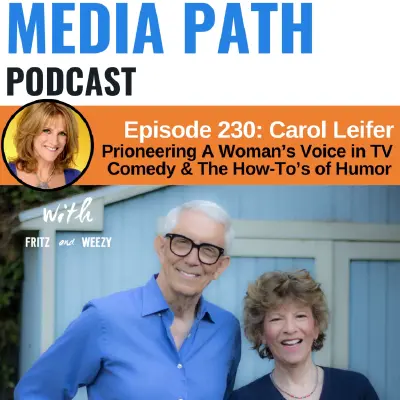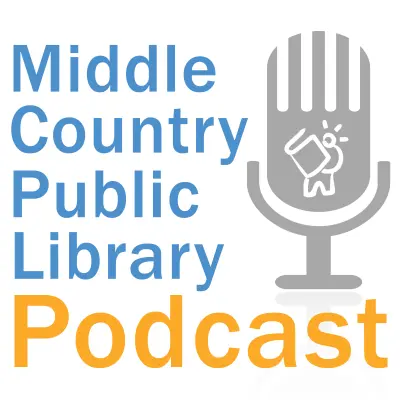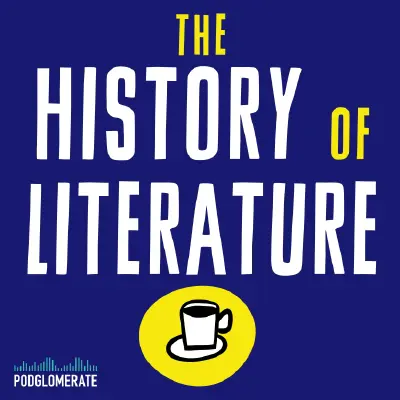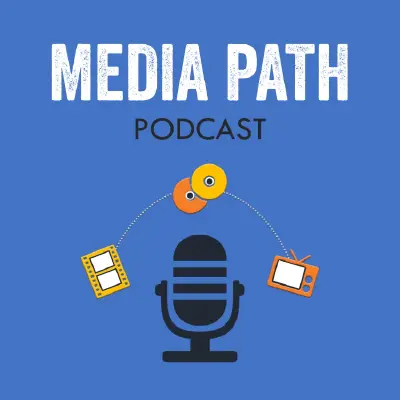Podcasts about Books
Episodes about Books

A disguised Alibi Jones hides within a Dakhur delegation on the planet Kismet, waiting and hoping to free his former friend Kit and his girlfriend Katie Ramsey from the planet’s criminal overlord, Rene Laveillur. Alibi has been warned - he’s a Dead Man if discovered on Kismet. What would Laveillur think if he found out Alibi Jones was on his planet? We may gain some insights in Chapter Twenty of Alibi Jones and The Sunrise of Hur! Listen to Free, independent audio science fiction on every episode with host, author, and narrator Mike Luoma. The Adventures of Alibi Jones Chronological Omnibus continues on Glow-in-the-Dark Radio!Our promo this week is for Nutty Bites: https://www.nimlas.org/blog. Thank You Glow-in-the-Dark Radio Patrons! Become a Patron at https://patreon.com/glowinthedarkradio. The 44+ Hour Adventures of Alibi Jones Chronological Omnibus Audiobook is available everywhere online. Links to all formats of the book at https://books2read.com/alibijonesomnibus. Free Stuff? Videos? Everything else? Links and details: http://glowinthedarkradio.com and http://mikeluoma.com. Music by Kevin MacLeod (https://incompetech.com). Show theme - "Hitman". Alibi Jones theme - "Mesmerizing Galaxy" Licensed under Creative Commons: By Attribution 4.0 License http://creativecommons.org/licenses/by/4.0/

Jul 11, 2025
Janet Yellen on the Danger of a “Banana Republic” Economy. Plus, Susan B. Glasser on Why “We Are the Boiled Frog.”
The New Yorker Radio Hour ❭
In conservative economics, cuts to social services are often seen as necessary to shrink the expanding deficit. Donald Trump’s budget bill is something altogether different: it cuts Medicaid while slashing tax rates for the wealthiest Americans, adding $6 trillion to the national debt, according to the Cato Institute. Janet Yellen, a former Treasury Secretary and former chair of the Federal Reserve, sees severe impacts in store for average Americans: “What this is going to do is to raise interest rates even more. And so housing will become less affordable, car loans less affordable,” she tells David Remnick. “This bill also contains changes that raise the burdens of anyone who has already taken on student debt. And with higher interest rates, further education—college [and] professional school—becomes less affordable. It may also curtail investment spending, which has a negative impact on growth.” This, she believes, is why the President is desperate to lower interest rates; he has spoken of firing his appointed chair of the Federal Reserve, Jerome Powell, whom he has called a “numbskull” and a “stupid person,” and installing a more compliant chair. But lowering interest rates to further political goals, Yellen says, “are the words one expects from the head of a banana republic that is about to start printing money to fund fiscal deficits. … And then you get very high inflation or hyperinflation.”Plus, “rarely have so many members of Congress voted for a measure they so actively disliked,” Susan B. Glasser noted in her latest column in The New Yorker, after the passage of a deficit-exploding Republican budget. Millions of people will lose access to Medicaid—a fact that the President lies about directly—and many trillions of dollars will be added to the deficit. Interest payments on the federal debt will skyrocket, and Trump is so desperate for lower interest rates that he seems poised to fire his own chair of the Federal Reserve and install a compliant partisan to head the heretofore independent central bank. “Anybody panicking about that in Washington?” David Remnick asks Glasser. “I think we are the boiled frog,” she replies. “We are almost panic-immune at this point, in the same way that Donald Trump has, I think, inoculated much of America against facts in our political debate. Even inside of Washington, there's so many individual crises at one time it’s very very hard in Trump 2.0 to focus on any one of them.”

Intro - Metz and Phil examine the job aspirations of Gen Alpha. Content (8:18) - Discussion of Part 2 of Chapter 23 of In Green's Jungles, by Gene Wolfe. This Month's Read-Along - The Stars My Destination, by Alfred Bester Check out more at alzabosoup.com.

Jul 10, 2025
Pioneering A Woman's Voice In TV Comedy & The How To's Of Humor with Carol Leifer
Media Path Podcast ❭
Carol Leifer entered comedy when a woman stand-up was considered a novelty or a niche, but even then she knew "things would eventually change." And change has come, due in no small part to Carol's own stelar show biz contributions. Carol joins us this week to talk about her formative years, her early standup, giving voice to iconic characters like Elaine Benes and Deborah Vance, and her new book, How to Write a Funny Speech!Carol's relationship with her father, an optometrist with an ear for comedy and a quick wit that delighted both patients and family, laid the foundation for her career trajectory. Her supportive parents encouraged her to pursue stand-up when the opportunity struck, and very soon, she was right at home at The Improv and on The Tonight Show.Even within the male-dominated comedy space, Carol found herself buoyed by peers and colleagues, in the clubs and on the sets of seminal sitcoms such as Seinfeld, The Larry Sanders Show and Curb Your Enthusiasm.Carol’s Seinfeld contributions tapped into women’s lived experiences and brought us the skinny mirror, the marble rye and the nail salon, but she reveals which of Elaine's iconic storylines was not her brainchild - 'sponge-worthy' was actually coined by male writer, Peter Mehlman!Enjoy an exciting spin on your favorite podcast showbiz trivia game as we invite Carol to play IMDB Roulette: Writer's Edition, where she dives into the intricacies of writing for: Seinfeld, Curb, Hacks, SNL and Ellen, plus traveling the globe with Henry Winkler, George Foreman, Terry Bradshaw and William Shatner! (She now calls him Bill.)Carol also shares her SNL writing regrets. (If she could only have gotten in better with Lorne.) We talk about her latest runaway hit book How To Write a Funny Speech and close the show with Fritz's favorite new Carol Leifer joke!In recommendations -- Weezy: The HBO original, My Mom Jayne: A Film By Mariska HargitayFritz: Netflix documentary, Trainwreck: The Cult Of American ApparelCarol LeiferHow To Write A Funny Speech: for a Wedding, Bar Mitzvah, Graduation & Every Other Event You Didn't Want to Go to in the First Place by Carol Leifer and Rick MitchellCarol Leifer on WikiCarol Leifer on InstagramCarol Leifer on FacebookCarol Leifer Amazon Author PageMy Mom Jayne from Mariska HargitayTrainwreck: The Cult Of American ApparelMedia Path PodcastMedia Path on Buy Me a Coffee

Dive into a captivating journey through history with this week's episode, covering significant events from July 6th to 12th. Explore the 250th anniversary of the American Revolution, the establishment of the U.S. dollar, and the first Major League Baseball All-Star Game. Learn about pivotal moments like Anne Frank's family going into hiding, the first open heart surgery by Dr. Daniel Hale Williams, and the Scopes Monkey Trial. From the Battle of Britain to the duel between Aaron Burr and Alexander Hamilton, this episode uncovers fascinating stories that shaped the world.

Jul 10, 2025
715 How Did George Eliot and the Victorians Respond to Climate Collapse? (with Nathan Hensley) | People at Museums Are Losing Their Brains! | My Last Book with Stephen Browning and Simon Thomas
The History of Literature ❭
What does it feel like to live helplessly in a world that is coming undone? If you're alive in 2025, you are probably very familiar with this feeling - and if you'd been alive in the age of Victorian literature, you might have felt that way too. In this episode, Jacke talks to author Nathan K. Hensley about his book Action without Hope: Victorian Literature after Climate Collapse, which studies how authors like George Eliot, Emily Brontë, H.G. Wells, Lewis Carroll, and Christina Rossetti used aesthetic strategies to deal with the anxiety and despair of ongoing climate disaster. What did they face? How did they cope? And can we learn from their examples?
PLUS Jacke dives into some news from Italian museums, where people have been "losing their brains." What's going on with them?
AND two Dickens experts, Stephen Browning and Simon Thomas, co-authors of The Real Charles Dickens, stop by to discuss their choice for the last book will they ever read. Will they choose something by Dickens?
Note: The "My Last Book" conversation in this episode was recorded before the untimely passing of Stephen Browning. He was a wonderful guest, and we at the History of Literature Podcast are very grateful to have had the chance to speak with him. Our deepest sympathies are with his friends, family, and loved ones. May he rest in peace.
Special Announcement: The History of Literature Podcast Tour is happening in May 2026! Act now to join Jacke and fellow literature fans on an eight-day journey through literary England in partnership with John Shors Travel. Find out more by emailing jackewilsonauthor@gmail.com or masahiko@johnshorstravel.com, or by contacting us through our website historyofliterature.com. Or visit the History of Literature Podcast Tour itinerary at John Shors Travel.
The music in this episode is by Gabriel Ruiz-Bernal. Learn more at gabrielruizbernal.com .
Help support the show at patreon.com/literature or historyofliterature.com/donate . The History of Literature Podcast is a member of Lit Hub Radio and the Podglomerate Network. Learn more at thepodglomerate.com/historyofliterature.
Learn more about your ad choices. Visit megaphone.fm/adchoices

During World War II, a groundbreaking group of elite female aviators flew over 60 million miles in every type of military aircraft, from the P-51 Mustang to the B-17 Flying Fortress. They were the Women's Air Force Service Pilots (WASP), and after proving that women belonged in the cockpit, their program was abruptly disbanded and their contributions were erased from history for decades. How did this happen? In this episode, we uncover the hidden history of these forgotten pioneers with bestselling author Heather B. Moore.Heather B. Moore's meticulously researched biographical fiction novel, the Lady Flyer book, brings to life the incredible story of Nancy Harkness Love, the quiet, lead-by-example director who founded the program. We explore the immense challenges these WWII female pilots faced, not just in mastering dangerous aircraft, but in battling constant bureaucratic red tape, gender bias, and political opposition. This is the story of how over 1,000 women answered their nation's call, only to be told to go home so men could have their jobs back.In this deep dive, Heather B. Moore reveals the fascinating details behind the WASP program. We discuss the critical difference between the WAFS (Women's Auxiliary Ferrying Squadron) and the broader Women's Air Force Service Pilots (WASP) organization, exploring their 60-million-mile mission to ferry newly built warplanes from factories to air bases across the country. The conversation also delves into the complex and often contentious relationship between the program's two most prominent leaders: the introverted and highly respected Nancy Harkness Love and the aggressive, self-promoting Jackie Cochran, who ran the training division. Heather shares insights from her extensive research, including stories of unimaginable bravery, heartbreaking tragedy, and the internal politics that nearly grounded the program before it could take flight. We also touch upon the shocking dismissal of the WASP in 1944 and their long, arduous fight to gain official veteran status decades later, a testament to the perseverance of these remarkable women.About Our Guest:Heather B. Moore is a USA Today bestselling author of more than seventy publications. She is an expert in writing biographical fiction and meticulously researched historical novels that shine a light on forgotten chapters of history. Her works, including Under the Java Moon and the acclaimed Lady Flyer book, are praised for being 90% history, bringing the past to life with compelling accuracy and narrative depth. In this episode, she also gives a sneak peek into her next project about another surprising WWII figure: the French chef Julia Child and her secret work for the OSS.Timestamps / Chapters:(00:00) The Hidden History of America's Female WWII Pilots(04:16) What is Lady Flyer About? The Story of the WASP(05:34) Nancy Love's Inspiration: Witnessing Charles Lindbergh's Landing(09:04) From Barnstormer to Leader: The Rise of Nancy Harkness Love(14:48) The Author's Mission: Discovering This Lost History(23:42) WASP vs. WAFS: Explaining the Acronyms of Female Fliers(25:21) The 60-Million-Mile Mission: What Planes Did the WASP Fly?(31:11) Rivalry & Betrayal: Nancy Love vs. Jackie Cochran(35:59) Dismissed & Forgotten: The Fight for Recognition After WWII(38:34) What's Next? Julia Child's Secret Life in the OSSLearn More From Our Guest / Episode Resources:Get your copy of Lady Flyer by Heather B. MooreLearn more about Heather's other booksWatch on YouTube_Produced by Podcast Studio X.

Dallas, Anne, and Lexi all sit down to chat about Superman: Secret Origin, Superman and the Legion of Superheroes, and Superman: Braniac

Alina Stefanescu on ruins, fear of flying, and life in the Romanian Republic of Alabama.

Jul 08, 2025
Episode 284: Best of – “The Garden Party” by Katherine Mansfield
The Literary Life Podcast ❭
This week on The Literary Life, we bring you an episode from deep in the archives in which Cindy and Angelina discussed Katherine Mansfield’s short story “The Garden Party.” After a great chat over their commonplace quotes, Angelina and Cindy dig into this week’s story. They start with how Cindy found this story and the connections she was making to Little Women. Angelina gives a brief biographical sketch of Katherine Mansfield and highlights how Mansfield’s own illness and death give us insight into how she deals with death in this story. Angelina walks us through how she looks at the use of figurative language and images, such as the Garden of Eden. They also touch on “The Garden Party” having the same structure of moving toward a moment of epiphany that we saw in “Araby.” Cindy brings up the disconnect between the world of the women at home and the working people outside the home, as well as between the classes in this story. They talk about the importance of Laura’s new hat as a symbol of one type of person she can become. Another image that Angelina and Cindy take a look at is the descent from the garden into darkness. They discuss the parallels from the beginning of the story and the end of the story, as well as Laura’s movement from innocence to experience, from blindness to sight. To view the full show notes for this episode, complete with commonplace quotes, book links, and this week's poem, please visit https://theliterary.life/284.
